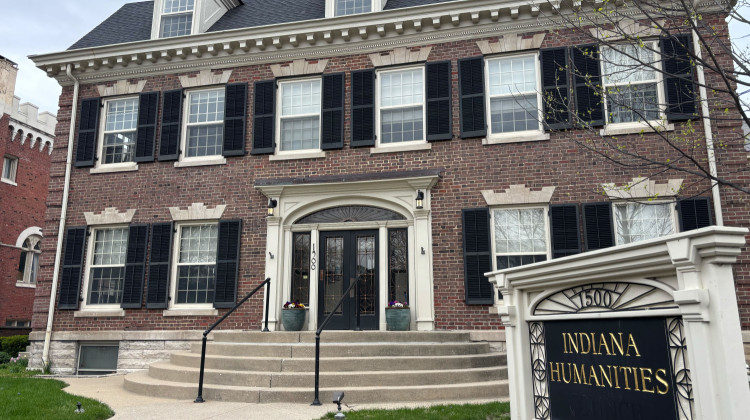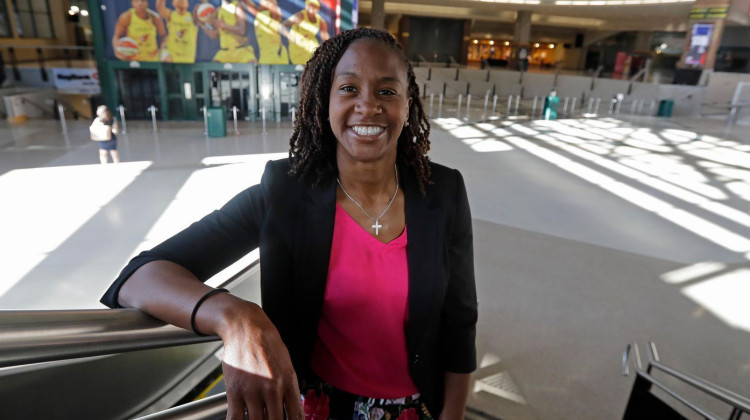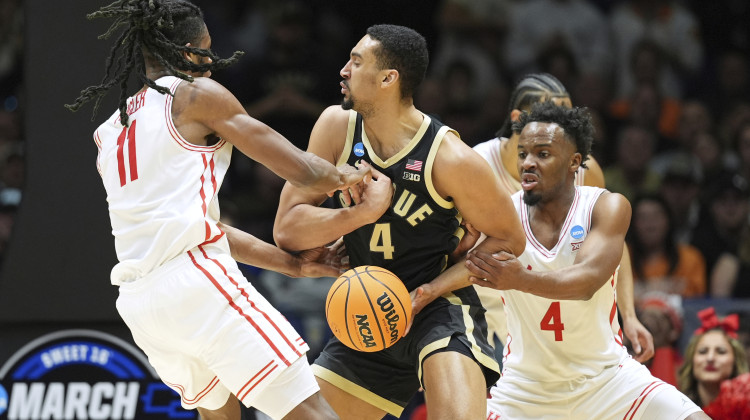Sarah Koenig is the host of the podcast Serial. The breakout first season raised questions about the 1994 trial of Adnan Syed, a Baltimore teenager convicted of killing his girlfriend. The podcast has been downloaded more than 400 million times and recently finished a third season that focused on the criminal justice system. Koenig spoke by phone with reporter Lauren Bavis about how the idea to examine Cleveland’s courts came from lingering questions about the Syed case.
Lauren Bavis: Was there a moment when you were making the first season that you thought, this actually might be something that that really resonates with a lot of people, specifically hundreds of millions of people?
Sarah Koenig: SK: I thought it was a good story. And it was a story that mattered to me a lot, obviously. I spent a long time on it. I thought, no one's going to turn off their radio. I guess that's kind of what I thought during this story, because I thought it was a good story, our first episode. But I didn't know, I had zero comprehension that it would take on a life of its own, essentially, which is what happened.
LB: What's it like for you to now watch new details emerge and the public obsession continue post-Serial?
SK: I feel like to the extent that people are interested in that story and it leads to some collective soul searching about how we want our judicial system and our criminal justice system to work, I'm 100 percent for it.
LB: How does the team come up with the stories that they want to cover? And why particularly the third season? In the first episode you talked a little bit about why you wanted to go into the criminal justice system the way you did. Can you speak to that any further?
SK: We were getting a lot of questions of ‘what does this mean about the entire system? Like, what can we say now about the criminal justice system?’ And the fact is, we I don't know. I sort of know, but I don't totally know, because it was such an unusual case. And also a first-degree murder, and that's not what's filling our courtrooms at all, right? It's much lower level cases and lower level felonies, basically, if you're going to be in a felony court. And so we were like, now I want to see how the normal, just the normal churn of a normal courthouse looks and feels and can we see the problems and can we see where it needs fixing? Can we figure out where we can do better if we watch?
LB: And in terms of deviating from the first and second seasons to tell not just one story but many stories in one courthouse, what kind of expectations did you set for yourself going into the third season?
SK: It's a different process, right? The other two stories I have my narrative, I have my main narrative, I know who my main character is. And so now I have to figure out what world and what context is that person living in? And how much of that do we want to explore? And how much can we get away with exploring in a narrative way and still keep people with us? This is the opposite. We're starting with a premise, we're starting with a place, we're starting with a system, and now what are my narratives? What are my stories? What are the story arcs? Who are my characters, who does it make sense to follow?
And that's a little scary for us. Because I don't know if I'm going to find a good story. I don't know if I'm going to find a story that feels surprising or emotional, or it's going to speak to something you don't already know or feel like your audience already knows. And so it was nerve-wracking for me as a reporter for a while where I'd be like, this is interesting, it's all interesting to me. I'm sort of a sucker for all of it. So I was like, I don't know, this is seems cool, and this seems cool and this seems cool. And being pulled in a million directions and not knowing, am I wasting my time? Or is this going to turn into something? So just in a planning way, it was a little more harrowing. But I've done other reporting like that and I knew it could work. I knew it probably would work, it just takes longer to figure out for the thing to come become clear to you and to reveal itself. So it was just a different storytelling challenge, for sure.
I didn't worry so much about, oh, this isn't one story. Maybe my partners worried a little more about that. I didn't worry about that so much. I worried more about, like, it's a rough subject and it's hard. It's a pretty grim picture that we paint of the system in season three and it's not always easy listening. And I worried more about that. This is hard to listen to, a lot of this, and I just didn't know if people would want to. But they did! It's been crazy. The numbers are huge for season three.
LB: Of all the people you met and spoke with in Cleveland, who stuck with you the most? Whose story are you still thinking about now that the season is over?
SK: The person that I'm actually still involved with is Joshua from the juvenile system. We speak all the time. I’m still very much a part of his life. I think about him a lot. I'm in contact with him constantly.
LB: Serial is a show that features investigative journalism. What do you think that the popularity of a show that's so focused on journalism means or says in the context of our current, really kind of hostile media climate?
SK: To me it's great news that it's popular and other shows like it now. There's more and more shows, or at least podcasts, that are happening all the time that are investigative, and they're surviving. I don't know how financially sound they are, but they seem to be proliferating. And I think it's the best thing in the world, I'm thrilled about that. That doesn't mean to say we're going to fix all the problems. It would be terrible news if somehow the concept of Serial or the concept of an investigative podcast that takes its time and requires a lot of mental and in some cases emotional energy to get through, if that were a flash in the pan and it was the only one, that would be sad. But we're not now. There's so many of them happening, so somebody's listening. And that's fantastic.
LB: What can you tell us about what's next for Serial and what are the plans for the next season, if there are any, or other spin off projects like S-Town?
SK: We have a company called Serial Productions right now. So we're developing a couple other podcasts that are made by our colleagues at This American Life and we are hopefully shepherding those toward a launch. So that's exciting. And then I'm working on a bunch of stuff. So there will be some sort of season four, but I don't know what it is yet.
 DONATE
DONATE








 Support WFYI. We can't do it without you.
Support WFYI. We can't do it without you.